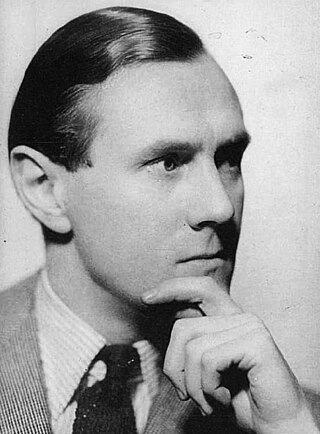Top Qs
Timeline
Chat
Perspective
1973 Nobel Prize in Literature
Award From Wikipedia, the free encyclopedia
Remove ads
The 1973 Nobel Prize in Literature was awarded to the Australian writer Patrick White (1912–1990) "for an epic and psychological narrative art which has introduced a new continent into literature."[1][2] He is the first and the only Australian recipient of the prize.[3][4][5]
Remove ads
Laureate
The historical themes of Patrick White's novels and plays focus on his own Australia and its people. During his lifetime, he enjoyed greater acclaim abroad than he did at home, where his critical gaze was occasionally misunderstood. In 1939, he released Happy Valley, his debut novel. The Tree of Man (1955), a book about a farmer and his wife struggling to build a future in rural Australia, was his major literary success. Modern humanity's sense of loneliness and emptiness is a recurrent topic in his literary works. His other well-known works include The Vivisector (1970) and The Eye of the Storm (1973).[3][6]
Remove ads
Deliberations
Summarize
Perspective
Nominations
In total, the Nobel Committee collected 205 nominations for 101 writers for their deliberations – the second highest number of nominations revealed so far after 1969.[7] White was first introduced for nomination in 1968 by Muriel Clara Bradbook, professor of English at Cambridge University. Henceforth, he became an annual nominee until he was subsequently awarded with the prize.[8] In 1973, he was endorsed by academics and professors from Australia, New Zealand and Finland.
Eighteen authors were first-time nominees such as Vicente Aleixandre (awarded in 1977), Conrad Aiken, Miodrag Bulatović, Chiang Yee, Albert Cohen, Adolfo Costa du Rels, Eugen Jebeleanu, Yaşar Kemal, Zenta Mauriņa, Henry Miller, John Crowe Ransom, Isaac Bashevis Singer (awarded in 1978), Martin Wickramasinghe and Xu Xu. The highest number of nominations was for Jewish author Elie Wiesel (awarded the 1988 Nobel Peace Prize). The oldest nominee was Estonian poet Marie Under (aged 90) and the youngest was Finnish writer Hannu Salama (aged 37). Six of the nominees were women namely Simone de Beauvoir, Indira Devi Dhanrajgir, Nadine Gordimer (awarded in 1991), Doris Lessing (awarded in 2007), Zenta Mauriņa and Marie Under.[7] The Indian novelist Tarasankar Bandyopadhyay, who died in 1971, was included posthumously by the Nobel Committee.[7]
The authors Samuel Nathaniel Behrman, Arna Bontemps, Faruk Nafiz Çamlıbel, Noël Coward, John Creasey, Roland Dorgelès, Neil Miller Gunn, Egon Hostovský, Benn Levy, Warren Lewis, Lucy Beatrice Malleson (known as Anthony Gilbert), Nancy Mitford, Elma Napier, Robert C. O'Brien, Jirō Osaragi, Vera Panova, William Plomer, Brigitte Reimann, Sergio Tofano, Margaret Wilson and Nobuko Yoshiya died in 1973 without having been nominated for the prize while the American author Conrad Aiken died before the only chance to be awarded.
Prize Decision
In June 1973, Nobel Committee chair, Karl Ragnar Gierow, expressed that setting the shortlist "the committee agreed on Patrick White, Saul Bellow also had five votes, Yiannis Ritsos got four, Anthony Burgess, William Golding and Eugenio Montale each got three."[9] Gierow himself listed Ritsos as his first proposal, followed by White and Bellow, but noted that the committee awaited further external opinions on the Greek poet. Gierow said that Patrick White appeared to have the strongest support in the committee, thoroughly deliberated and a final contender in recent years, but noted that White's most recent novel The Vivisector was not as strong as his previous work which possibly would be a reason for the committee to await further works before awarding him, and noted that Bellow at this point appeared as the stronger candidate. While saying Montale could be regarded as a worthy recipient of the prize, Gierow was not ready to recommend him, neither did he want to recommend Burgess or Golding, although saying both would be acceptable. In his report, Gierow also noted the candidacy of Isaac Bashevis Singer (subsequently awarded in 1978), but that Singer's work yet needed to be investigated by the committee.[10]
In an additional report dated 5 September 1973, Gierow wrote that he had found Bellow's candidacy strengthened and White's candidacy weakened due to latters newly published novel The Eye of the Storm, which Gierow found even weaker than The Vivisector. Gierow now listed Bellow as his first proposal followed by Montale, Burgess, Golding and White. Yiannis Ritsos candidacy was postponed by the committee as they were still awaiting external reports on his work.[10]
On their meeting on 6 September 1973 the committee settled on a final shortlist with Patrick White as their first proposal, Bellow as the second proposal, Montale as the third and Burgess as the fourth proposal.[10]
Remove ads
Award ceremony speech
At the award ceremony in Stockholm on 10 December,ber 1973, Artur Lundkvist of the Swedish Academy said:
Patrick White’s literary art has spread his fame throughout the world and he now ranks as Australia’s foremost representative in his field. His creative work, performed in solitude and doubtless in the teeth of considerable opposition, in various kinds of adversity, has gradually yielded lasting and progressively more widely acknowledged results, in spite of the doubts he himself may have had concerning the value of his efforts. The controversial side of Patrick White is connected with the extreme tension of his self-expression, with his assault on the most difficult problems: the very qualities that constitute his indisputable greatness. Without those qualities he would be unable to bestow the consolation now present in the very midst of his gloom: the conviction that there must be something more worth living for than our onward rushing civilization seems to offer.[11]
Patrick White did not travel to Stockholm to attend the award ceremony. His Nobel prize was received by his friend, the Australian artist Sidney Nolan.[11]
References
External links
Wikiwand - on
Seamless Wikipedia browsing. On steroids.
Remove ads

